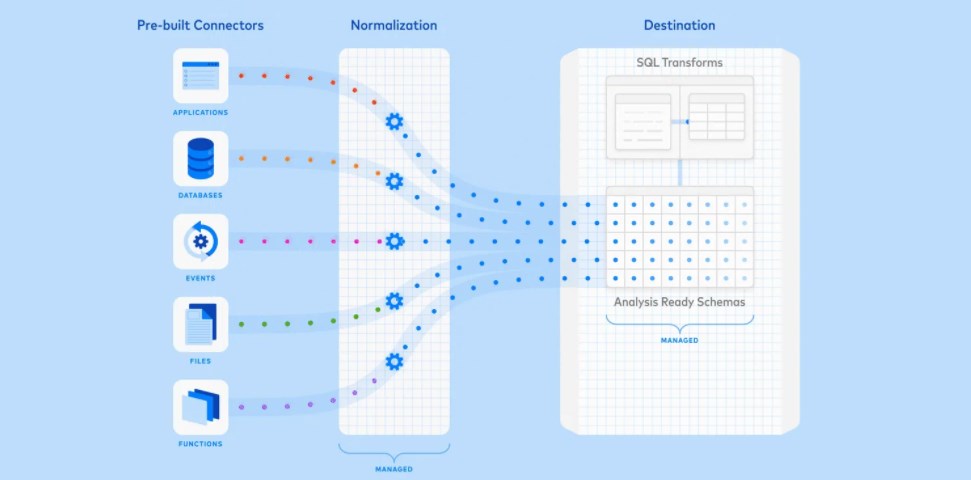In today's era, data is abundant. Organizations must be more careful with their data management techniques to protect confidential customer information and avoid legal issues. Data management involves developing and maintaining records, updating them with any new information, and ensuring that record security is maintained.
For a business to function properly, applying appropriate data management techniques is essential. Furthermore, this activity must be highly accurate, cost-effective, and performed promptly. Failure to manage data can have costly consequences and a permanent impact on a company's reputation.
Importance of data management or data administration
It's every business's responsibility to have a solid data management strategy . Below are some reasons why data management is crucial to any business's success.
1. Instant availability of information
Data management makes information readily available for rapid access according to business requirements. It is also important for accounting processes, such as auditing, and other strategy-based processes, such as business planning.
Living in a fast-paced business environment requires companies to stay alert and have data at their fingertips. The easy access to information that data management provides is essential for any type of business. For any B2B or B2C business, having a history of previous customers on hand is essential to provide the best customer service, for example.
On the other hand, the more time you spend searching for lost records and misplaced files, the less effective you'll be. And you know that time is money. Therefore, keeping all your records organized can help make processes smoother and faster.
Data management creates a resource for organizations and makes them more knowledgeable. It also saves organizations from spending money on hiring external resources who are experts in the field.
The DIKW hierarchy can help organizations generate internal knowledge more efficiently. Below is a breakdown of what it can do for an organization:
Data: This is the foundation of the entire structure and what an organization needs to have in order to move forward.
Information : This is what the above “data” will become once it is assigned its purpose.
Knowledge: that which can be learned by performing an in-depth analysis of the available information.
Wisdom : which can only be achieved if the analysis previously performed is successful and a relevant conclusion is derived.
2. Compliance with regulations
Several countries have now made it mandatory for companies to keep all their legal and financial documents in order. This law is being implemented following the accounting scandals that occurred in the 20th and 21st centuries. The reason behind most of these scandals was incomplete financial and legal documents. To avoid prosecution, many companies destroyed all records of their company information.
This prompted the government to pass a law requiring companies to maintain these records. There are also regular audits to ensure no tampering occurs. Furthermore, if a company is involved in a case, it must retain these documents for years until a solid judgment is reached. Data management makes it easier to maintain complete control over all records and store them securely.
3. Faster transitions to new technologies
As technological trends change rapidly , businesses must embrace whatever comes their way. With things happening so quickly around us, there's no reason for businesses to lag behind and remain obsolete. Having data management and specialists to maintain these records is crucial so that, when the time comes, the data transfer can go smoothly.
Losing information in old or obsolete systems is the last thing you want for your business. All the data stored in company records is necessary for daily operations, managing different departments, performing calculations, audits, and more. A company that doesn't keep track of all its information won't be able to transfer it to new systems.
4. Provide an omnichannel customer experience
Every organization is driven by a customer relationship management database. This information retains records about individuals who have been associated with the company in the past. Along with managing customer interactions, this database is also used to record and access customer data. With data management, organizations can use this data to track the relationship the company has had with all buyers combined and the preferences they have shared in the past.
The metrics derived from this database help companies draw insights into customer choices, helping them make better-informed marketing decisions in the future. Plus, you could offer value-added benefits to long-term customers.
On the other hand, you could also target customers who haven't returned and make offers they can't resist. Organizations with well-developed customer data management can provide a better customer experience and are more efficient when it comes to converting potential customers into buyers.
Key findings
One cannot simply deny the importance of data in today's world. Furthermore, as a business owner, it is important to have a powerful data management system that is efficient and cost-effective. Poorly managed data is of no use to a company and can lead to inefficiencies, lost revenue, and overinvestment of resources simply because it requires more people to manage the system.
Therefore, create a management system that works for your company and is understandable to your employees. All new hires should be informed about using the system to avoid any pitfalls.
If you're not yet ready to use data management , or have any questions, send us a message for advice . Our experts will help you without obligation!







